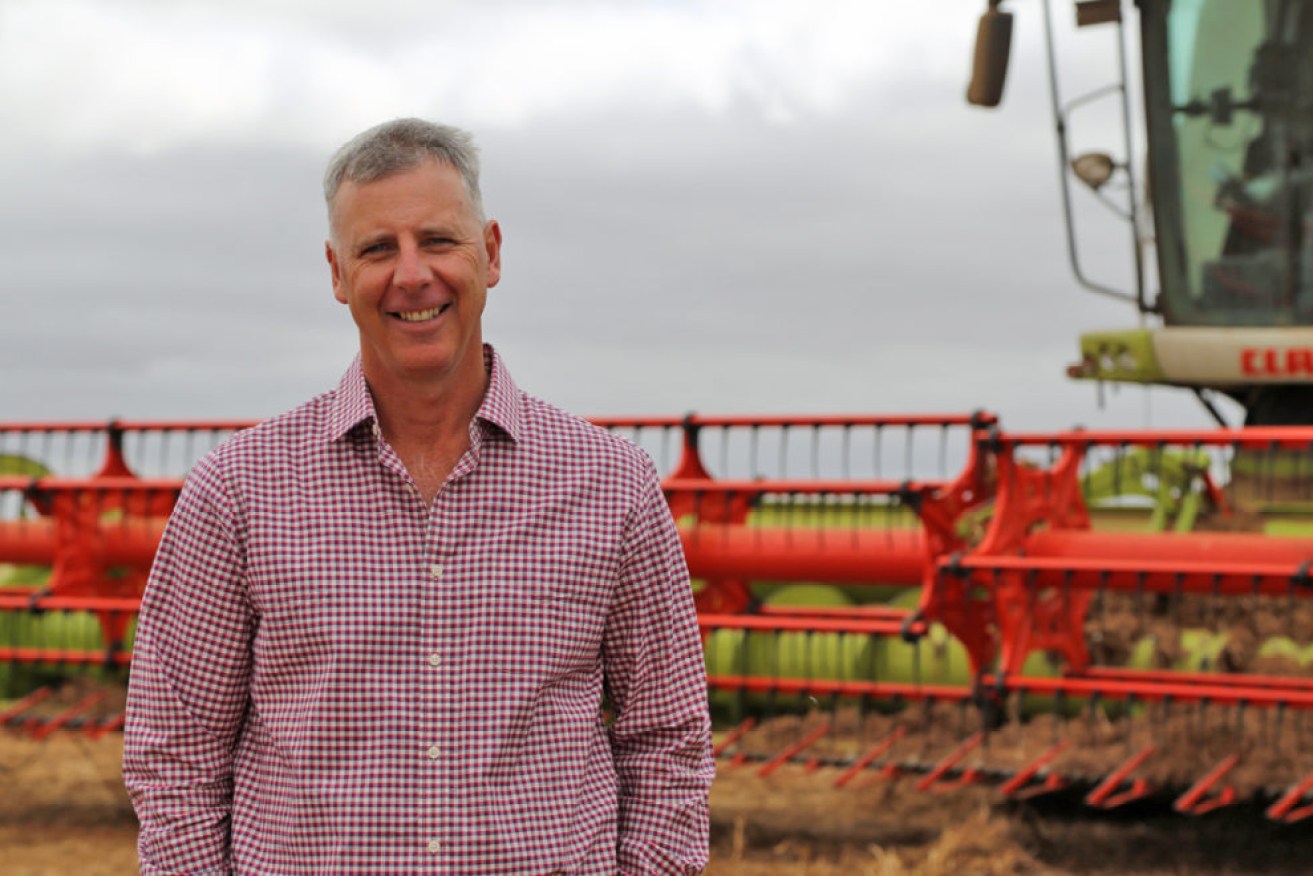SA’s first GM crops planted amid bumper harvest
The first genetically modified canola crops are being planted in South Australia following the controversial lifting of a 16-year moratorium.


Grain Producers SA chair Adrian McCabe is among a number of SA farmers planting GM canola crops for the first time this year.
Despite the dry start to the season with rainfall averages well below average for March and April and virtually no rain so far in May, farmers have begun dry-sowing crops including GM canola.
Grain Producers SA chair Adrian McCabe, who is growing a small amount of GM canola at his farm near Hamley Bridge this season, said the option to plant genetically modified canola gave farmers another tool to consider.
“I understand there’s been good uptake in the (GM crop) stewardship program and I assume those growers are all putting their toe in the water to have a look at it this year,” he said.
“At GPSA we’ve always encouraged choice and understand that growers need to use different agronomic tools to help with their environmental impact and they’ve now got a larger choice of crops to pick from.”
McCabe said it was not unusual to plant crops before the arrival of season-breaking rains and dry sowing was well underway.
“Certainly canolas, there are probably legumes going in and people would be seriously considering putting in cereals such as wheat, oats and barley,” he said.
“Many farmers now sow by the date – it’s not for everybody but certainly a large percentage would be sowing from April so they can get rain on top of the crop and conserve as much moisture as possible.
“The average break is mid-May and we’re not out of that window yet so there are no alarm bells at the moment.
“It would be nice to see some double-digit (rainfall) forecasts … I think most people are hoping for an average winter.”
All other mainland states allow genetically modified crops to be grown, with canola and cotton the first to be approved for growth in Australia.
Legislation lifting a 16-year-old ban on genetically modified crops in SA was passed by state parliament in May last year.
This sparked a process allowing councils until September 30 to apply to be GM-free if they consulted with their local community and demonstrated an economic benefit.
Eleven councils, mainly in wine regions within 100km of Adelaide, applied to remain GM-free. The councils argued the ability to grow GM crops would tarnish the “clean and green” reputations of their regions and potentially lead to millions of dollars in lost exports.
But all the applications were rejected by the GM Crops Advisory Committee in November, clearing the way for GM crops to be planted in the state this year.
Kangaroo Island has had its GM-free moratorium preserved under a separate deal struck with the state government in 2019.
The state government released its Crop and Pasture Report today.
It shows the 2020-21 harvest was the second most lucrative crop on record in South Australia, reaching $2.5 billion in farm gate value from 9.14 million tonnes.
The four million hectares planted last year was the seventh-largest on record for area and was second only in value to the bumper $2.7 billion crop of 2010-11.
McCabe said the strong result was a combination of excellent crop quality matched with solid prices and yields.
He said a few areas such as the Far West Coast and parts of the Mid North had lean years but most areas enjoyed average or above-average seasons.
“It really shows our ability to use agricultural techniques to produce fantastic yields in what was a below-average rainfall year so it was an exceptional result for South Australia,” McCabe said.
“Our ability to conserve water and use it efficiently to grow crops is exceptional and second to none worldwide.”




